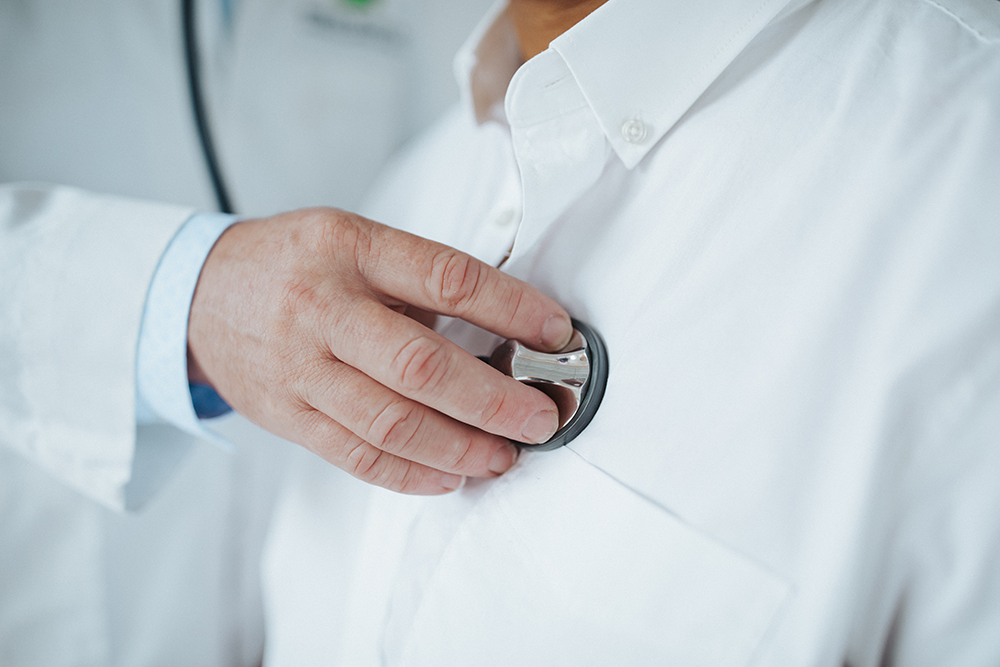
Gastroesophageal reflux disease is the back-flow of acidic or non-acidic stomach contents into the esophagus. Gastroesophageal reflux disease (GERD) is characterized by symptoms, with or without tissue damage, that result from repeated or prolonged exposure of the lining of the esophagus to acidic or non-acidic contents from the stomach. GERD is very common, affecting up to 1 in 5 men and women in the U.S. population. It also occurs in children.
GERD occurs when the Lower Esophageal Sphincter (LES) barrier is weak or compromised. Causes of gastroesophageal reflux disease are obesity, poor dietary habits, pregnancy, and lifestyle choices, such as smoking and alcohol intake. Another cause is the presence of hiatal hernia, which occurs when a part of the stomach moves above the diaphragm, from the abdominal to the chest area. The diaphragm is a muscle that separates the chest (containing the esophagus) from the abdomen (containing the stomach). If the diaphragm is not intact, it can compromise the ability of the LES to prevent acid reflux. A hiatal hernia may decrease the sphincter pressure necessary to maintain the anti-reflux barrier.
In people with GERD, reflux causes frequent symptoms or damages the esophageal tissue. Chronic heartburn is the most frequently reported symptom of GERD. Other symptoms may include:
- Acid regurgitation (refluxed acid into the mouth), sometimes associated with sour or bitter taste
- Belching, difficulty or pain when swallowing
- Dysphagia (the sensation of food sticking in the esophagus)
- Chronic sore throat, laryngitis, throat clearing, chronic cough, and other oral complaints, such as inflammation of the gums and erosion of the enamel of the teeth
- Hoarseness in the morning, a sour taste, or bad breath may be clues of GERD
Long term complications of gastroesophageal reflux disease include:
- Esophagitis, inflammation of the esophageal mucosa
- Ulceration, a breakdown of the esophageal mucosa that could lead to bleeding
- Stricture, formation of scar tissue that narrows the lumen of the esophagus
- Barrett’s esophagus, a condition in which normal tissue lining the esophagus changes to tissue that resembles the lining of the intestine (This condition could be a precursor to Esophageal Cancer)
Various methods to effectively treat GERD range from lifestyle measures to the use of medication or surgical procedures.
The goals of gastroesophageal reflux disease treatment are:
- Eliminate symptoms
- Heal esophageal mucosa
- Maintain remission – for a lifetime
- Manage or prevent complications
GERD is a chronic disease. Treatment usually must be maintained on a long-term basis, even after symptoms are well controlled. Issues of daily living and compliance with long-term use of medication need to be addressed, as well. This can be accomplished through follow-up and education.
It is essential for individuals who suffer the chronic and recurrent symptoms of GERD to seek an accurate diagnosis, to work with their physician, and to receive the most effective treatment available.
Tips to prevent GERD:
- Lose weight. Obesity is the leading cause of GERD
- Avoid foods known to cause reflux, such as:
- fatty foods
- spicy foods
- acidic foods
- mint
- chocolate
- onions
- coffee or any caffeinated beverage
- Eat smaller meals. Large meals fill the stomach and put pressure on the LES, making reflux and GERD more likely
- Don’t lie down after eating. Wait at least three hours before you lie down after a meal. Gravity normally helps keep acid reflux from developing.
- Elevate your bed. Raising the head of your bed six to eight inches can help gravity keep gastric acid down in your stomach. You could also use a wedge-shaped support. Don’t use extra pillows, as they only raise your head and will not help with GERD. You need your entire upper body elevated to get relief.
If you have been dealing with GERD and have not achieved improvement with medical treatment ask your doctor to refer you to a surgeon to explore surgical treatment.
Original post by Eric Velazquez on ericvelazquezmd.com








